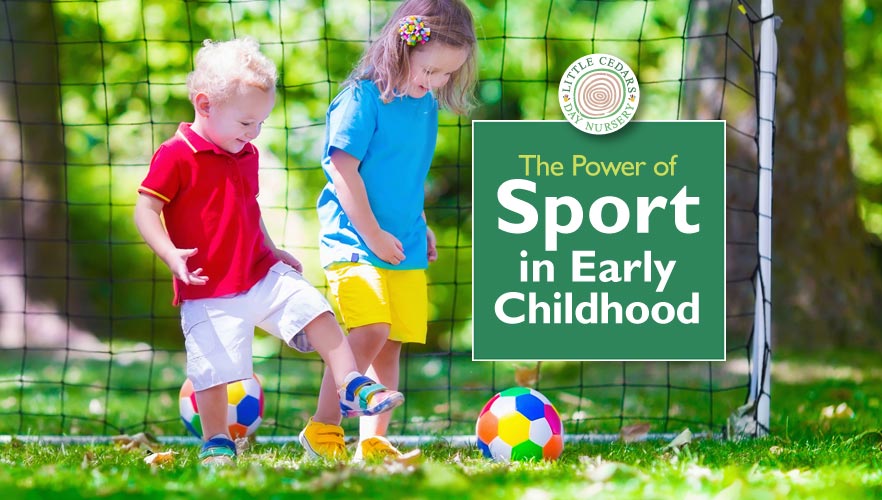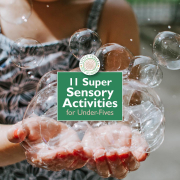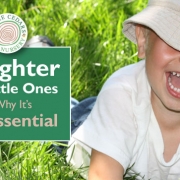The Power of Sport in Early Childhood

Whether they’re naturally sporty or require a bit of practice, most children enjoy sports of one type or another at some point in their young lives. Some may take to a specific sport right away while others may identify a sport that they see potential in much later on. Two things are certain with sport though: firstly children can only discover a sport they enjoy if they try a few out for size and, secondly, sport of any kind is likely to benefit them in a number of ways. With the latter in mind, today’s article investigates some of the ways that sport benefits children in their early years.
Some of the Benefits of Sport in the Early Years
“Sport has such an incredible power to have a hugely positive impact on children’s lives. It increases their physical and mental well-being, helps them achieve at school and teaches important life skills such as working as a team, developing the confidence to try new things and taking leadership.” (Minister for Sport and Civil Society, 07/19)
Sport Offers Something for Everyone
One of the good things about sport is that it comes in so many different forms. Examples include anything from skateboarding, hockey and water sports to football, table tennis, gymnastics and squash. These examples are all very different and that’s a good thing. Essentially, it means there is generally a sport to suit everyone — it’s just a case of trying out several to see which is the best natural fit. With that goal in mind, encouraging young children to sample a wide range of different sports, ball games and sporty leisure activities is highly recommended. Once a child finds a sporting activity they love, it can potentially open up a whole new world to them.
Levelling the Playing Field
That wide range of different sports is a great leveller. With there being some kind of sport for most children, they’ll have something that gives them enjoyment, a sense of achievement and the feeling that they belong. For those children who previously felt a bit different and perhaps an ‘outsider’, including those with special educational needs, that feeling of belonging is important.
Improving Social & Interpersonal Skills & Communication
The above brings us nicely to another benefit of sport; that of improving social skills. When a child plays a sport with other team members or even opponents, they will naturally learn to improve communication and, through doing so, also hone skills like teamwork, leadership, critical thinking, strategy, and cooperation. These are skills that will stand them in great stead as they grow towards their teenage years and ultimately adulthood.
What’s more, of course, taking part in sports and being part of a team is a fabulous way to make deeper bonds with peers, form long-term friendships, and build an expanding friendship circle. Having decent bonds with others will enrich children’s lives and is a major key to childhood happiness.
Life Skills
It’s also important for children to learn from both success and failure in sports (and in life). Learning skills like good sportsmanship, winning or losing gracefully, resilience, and perseverance are highly useful life skills to master. Similarly, sports and being a part of a team can help instil discipline, responsibility, punctuality, and the importance of playing by the rules. All such skills and lessons will be important and useful throughout life as well as academically.
Cognitive Development
The strategic thinking, communication, teamwork, cooperation and problem-solving aspects of sport will also help children to develop cognitively. As well as being a workout for the body, sports can often also be a workout for the brain. As such, children’s mental agility will also increase. This can only be positive in the classroom and in daily life. Indeed, studies show that memory, concentration and academic performance are all significantly improved when children take part in regular physical activity.
Improving Health, Fitness, Agility & Mobility
Some of the more obvious benefits of taking part in sports, including in the early years, include improved fitness, improved strength and stamina, improved motor skills, and better coordination and balance. All these things will, in turn, improve the lives of children in their daily activities as they grow older.
An active lifestyle and regular active play during sports sessions will also help children maintain healthy bones, muscles, and even weight. With childhood obesity rates now at alarming levels, sport is a simple, fun, and easy activity that will help in the fight against such an important issue.
“The UK Chief Medical Officers recommend that children do at least 60 minutes of moderate to vigorous physical activity every day, yet just 20% of boys and even fewer girls (14%), are meeting this target, despite 95% of children saying that they enjoy being active.” (Public Health England)∞
Better Sleep
There’s nothing quite like the exertion of physical energy to tire little ones out. Letting them play sports, ball games and run around is therefore a sure-fire way to help them sleep well at night and, if applicable, during daytime naps. And, as we know, high-quality sleep is incredibly important for children and adults alike, allowing the body and mind to recharge in many different ways.
Sports Activities are Great Fun!
Let’s not forget the most obvious but perhaps overlooked benefit of sports — they are great fun for children. Running, playing in teams, and getting involved in a wide variety of energetic activities etc. are an intrinsic part of any happy childhood. Sports allow children to play in incredibly active ways, often over wide spaces that give them a feeling of immense fun and freedom.
Good for Mental Health & Well-Being
Letting off steam through sport and active play will also act as a healthy stress-buster. Letting loose on a sports field and running free will lift spirits and help children shake off any anxiety they may have felt in the classroom or at home. As children’s sporting skills improve over time, they will also get a better sense of self-esteem, accomplishment, and confidence. These, too, are important for their mental health and well-being.
“Evidence shows that children and young people who are more active have more confidence, higher self-esteem, less anxiety and stress and better social skills – attributes that can help them deal with the challenges they face in daily life. Positive attitudes towards physical activity have also been associated with children being happier.” (Public Health England)
A Possible Career in Sport
Those children who excel at or learn deeply from sport also get additional opportunities from the activity; a possible career in sport. Opportunities include anything from coaching and physiotherapy to places in professional teams that get featured on TV and radio. And, of course, the most talented may even end up winning gold at the Olympics! Indeed, many of the sports stars that we hear about began their interest at a young age. The career potential of sport is simply immense.
Little Cedars Nursery, Streatham
High-Quality Childcare Near Furzedown, Tooting, Balham, Norbury & Colliers Wood

 Streatham boasts many opportunities for sport as children grow. From sports clubs, an ice skating rink, and the world-class Crystal Palace sports and athletics complex, to the famous football stadium at Selhurst Park, many centres for sport are located just a stone’s throw from our Streatham nursery. For children who get into sports at an early age, such venues offer incredible opportunities for both leisure and even possible future careers. Given some encouragement and the right opportunities, perhaps even some of our own little ones could end up as future sporting stars!
Streatham boasts many opportunities for sport as children grow. From sports clubs, an ice skating rink, and the world-class Crystal Palace sports and athletics complex, to the famous football stadium at Selhurst Park, many centres for sport are located just a stone’s throw from our Streatham nursery. For children who get into sports at an early age, such venues offer incredible opportunities for both leisure and even possible future careers. Given some encouragement and the right opportunities, perhaps even some of our own little ones could end up as future sporting stars!
If you would like to explore a possible nursery or preschool place for your child at Little Cedars Nursery, please get in touch today. You can apply for a place, request a guided visit, or ask any questions using the options below:









